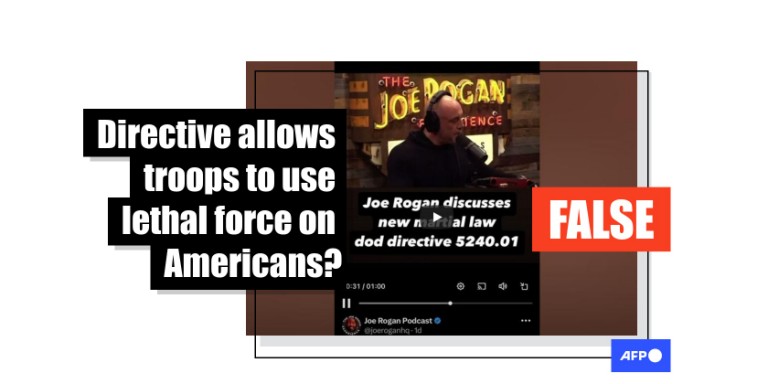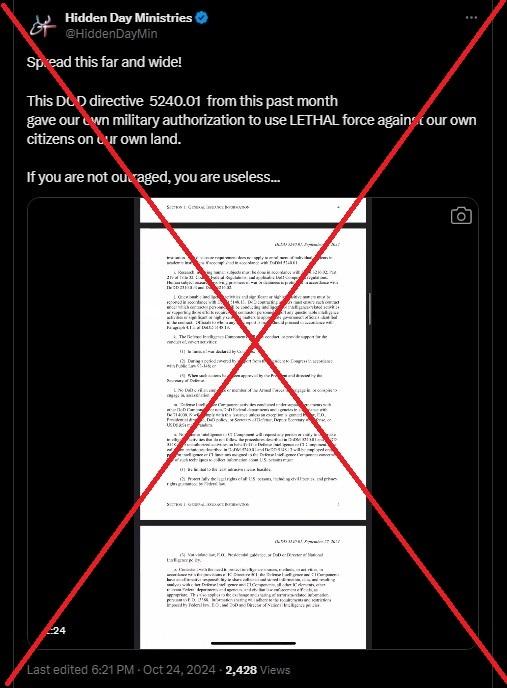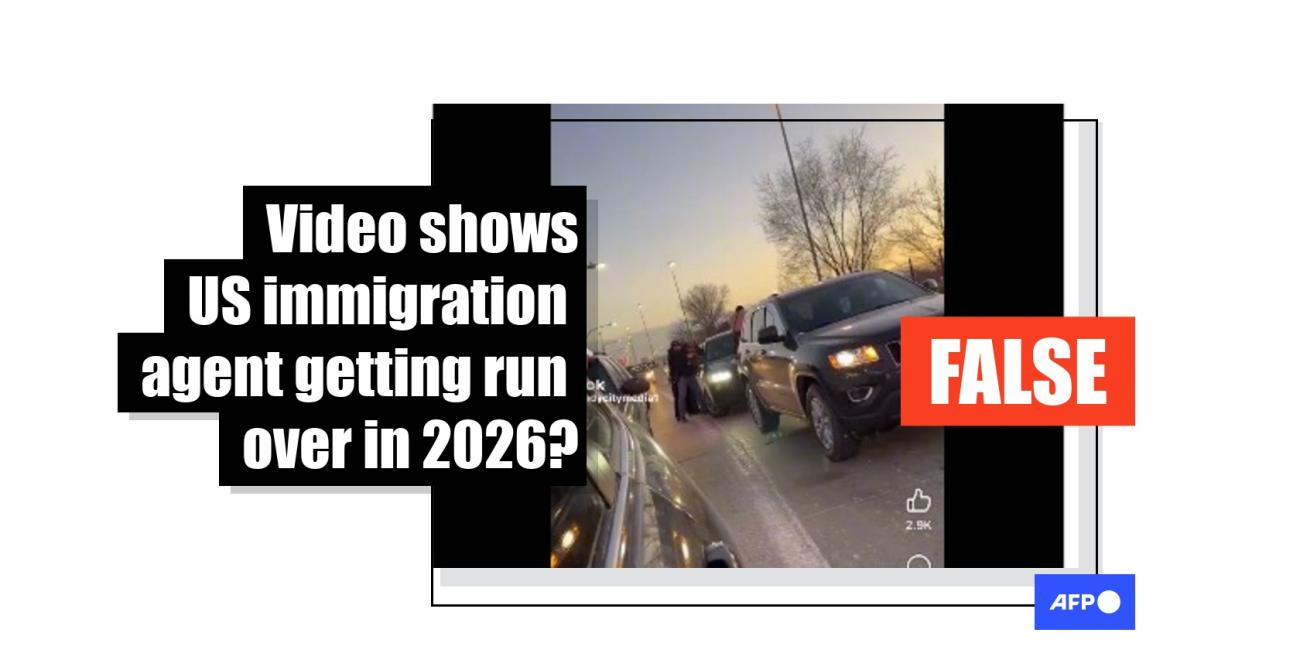
Pentagon policy does not authorize killing US protesters
- This article is more than one year old.
- Published on October 31, 2024 at 19:08
- 4 min read
- By Rob Lever, Roxana ROMERO, AFP USA
The September 2024 update "includes the legal use of lethal force against civilians by the military if directed by DoD, over-riding Posse Comitatus laws that should protect us," says an October 18 Instagram post.
The claim gained momentum two weeks before the US presidential election, after being amplified by Robert F. Kennedy Jr, a former White House candidate who is now backing Republican Donald Trump. The podcast host Joe Rogan also weighed in, saying the directive is "giving the Pentagon power for the first time in history to use lethal force to kill Americans on US soil who protest government policies."
Former Republican congressman Ron Paul made the same claim on Rumble, as did others on platforms such as X, TikTok and YouTube -- including in Spanish.


The posts, which come amid a heated US presidential campaign pitting Vice President Kamala Harris against former president Trump, suggest the Biden administration sought the change to quell possible protests after the November 5 vote.
The Posse Comitatus Act, passed in 1878 during Reconstruction (archived here), bars the use of military forces for law enforcement on US soil. One exception is the Insurrection Act, which the president can invoke if they believe it is "necessary to suppress an insurrection, domestic violence, unlawful combination or conspiracy" (archived here) -- as was the case during the civil rights movement of the 1950s and 1960s.
Trump considered using the law in response to 2020 civil rights protests. He has more recently suggested he would deploy the military against the "radical left" if he wins back the White House.
Claims that Directive 5240.01 (archived here) overrides the Posse Comitatus Act and gives the military new powers are false.
"The reissued directive does not reflect any change to DOD's views toward its role in supporting civil authorities, to include law enforcement; rather, it provides clarification and delineates the approval authorities for activities conducted by Defense Intelligence Components," spokesperson Sue Gough told AFP in an October 29 email.
"The policies concerning the use of force by DOD addressed in DoDD 5240.01 are not new, and do not authorize the DOD to use lethal force against U.S. citizens or people located inside the United States, contrary to rumors and rhetoric circulating on social media."
Gough said the update, which instead describes and clarifies some existing protocols on the use of force, is unrelated to the election campaign.
"Revisions of DOD issuances are routine and ensure that departmental policies continue to be consistent with law and Executive Branch policy," she said, adding that the directive "requires a legal review of all requests for intelligence assistance, which provides further safeguards to ensure that DOD activities comply with all U.S. laws, including the Posse Comitatus Act."
'Much ado'
Joseph Nunn and Elizabeth Goitein, researchers at New York University's Brennan Center for Justice, called the social media claims "much ado about nothing" in an October 25 blog post (archived here).
"Directive 5240.01 does not provide any new authority to deploy the military domestically; nor could it," they wrote.
"A directive cannot make lawful an activity that does not have some legal basis either in statute or in the president's powers under Article II of the Constitution."
Mark Nevitt, an associate professor of law at Emory University specializing in national security and constitutional issues (archived here), agreed, telling AFP in an October 30 email that any executive order could "absolutely not" override existing laws.
"The Posse Comitatus Act could not be clearer -- any exception has to be found in the Constitution or an act of Congress," he said. "A Pentagon directive is just that -- an internal regulatory document that is not a constitutional amendment or an act of Congress."
In a 2020 blog post (archived here), Nevitt wrote that although the president -- then Trump -- is commander-in-chief, "he lacks the authority to use the military in any manner that he pleases."
A president who invokes the Insurrection Act would still be limited, as was the case when George H.W. Bush deployed troops in the 1992 Los Angeles riots. Levitt wrote that then-Governor Pete Wilson had to request military assistance before Bush could issue an executive order authorizing the defense secretary to federalize the California National Guard.
However, Nunn wrote in a 2022 blog post that the Insurrection Act does have loopholes (archived here).
"In theory, the Insurrection Act should be used only in a crisis that is truly beyond the capacity of civilian authorities to manage," he said. "However, the Insurrection Act fails to adequately define or limit when it may be used and instead gives the president significant power to decide when and where to deploy U.S. military forces domestically."
More of AFP's coverage of 2024 US election misinformation is available here.
Copyright © AFP 2017-2026. Any commercial use of this content requires a subscription. Click here to find out more.
Is there content that you would like AFP to fact-check? Get in touch.
Contact us




